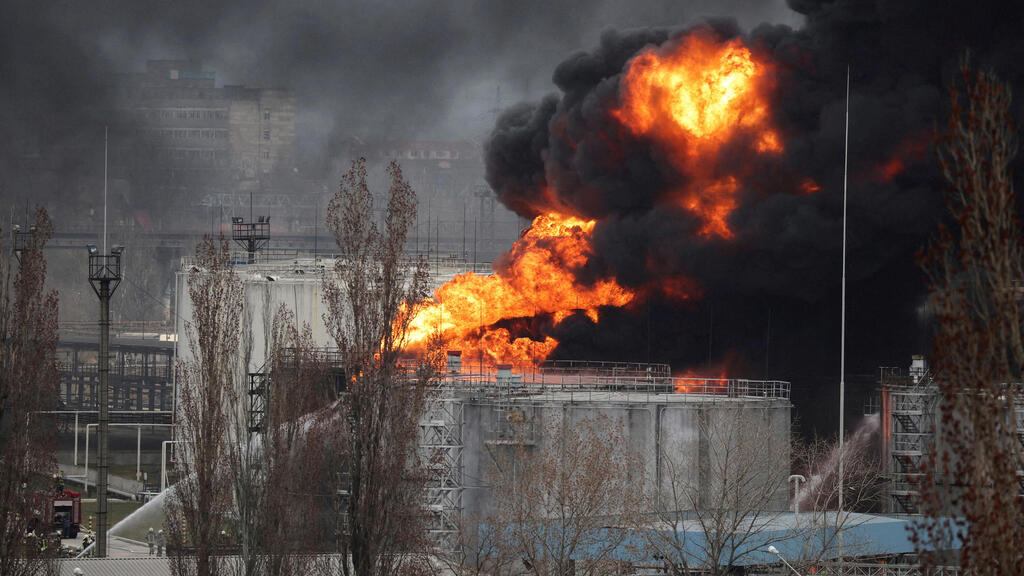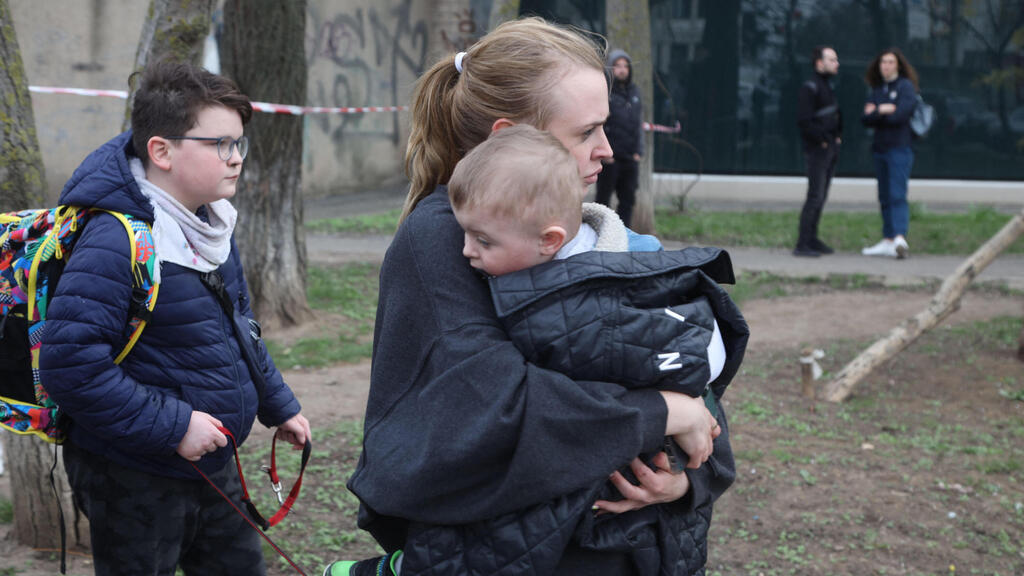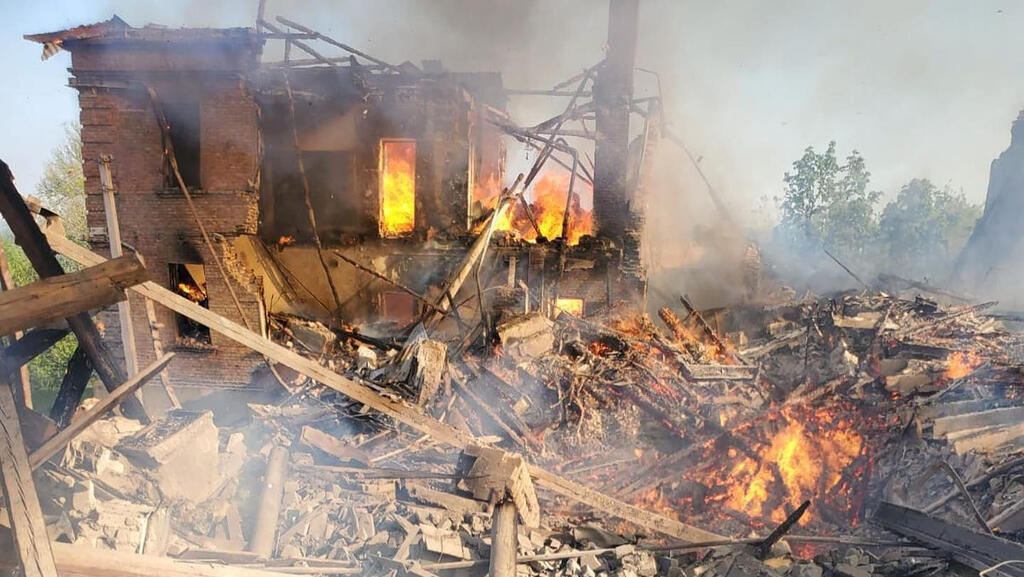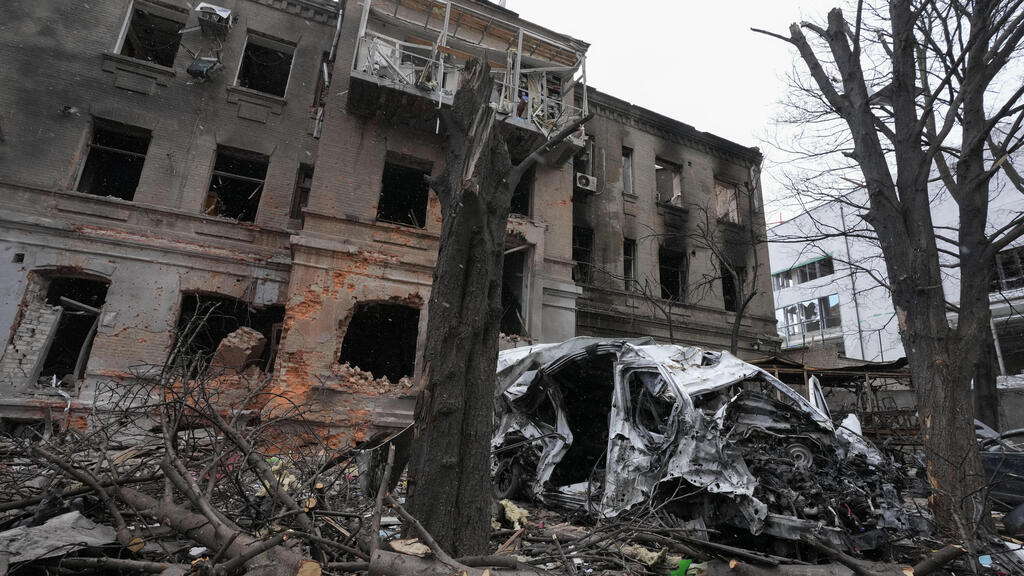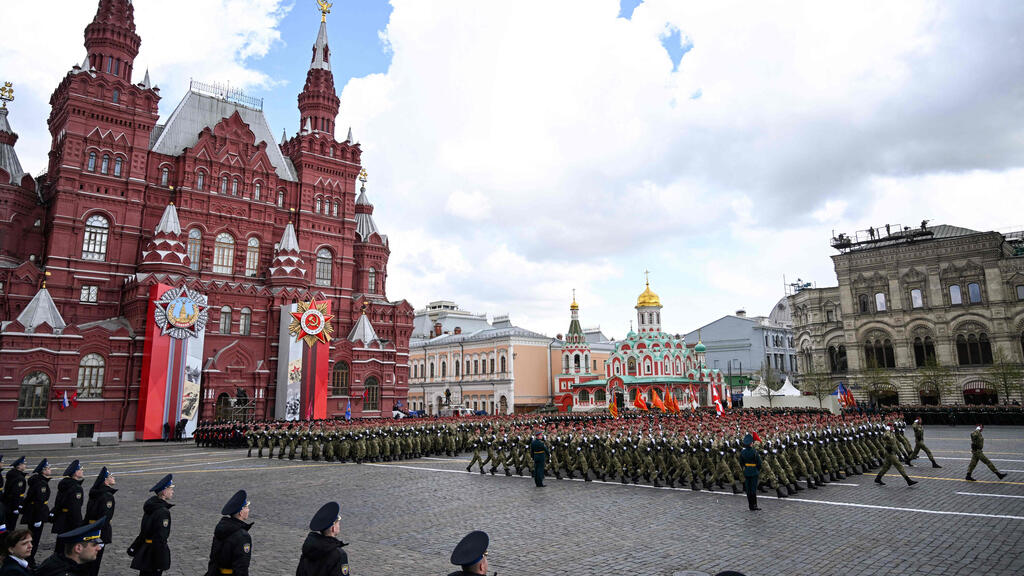Getting your Trinity Audio player ready...
Russia pounded away at Ukraine's vital southern port of Odessa, Ukrainian officials said Tuesday, as they announced they found the bodies of 44 civilians in the rubble of a building in the northeast that was destroyed weeks ago.
The bodies were found in a five-story building that collapsed in March in Izyum, about 120 kilometers (75 miles) from the city of Kharkiv, which has been under sustained Russian attack since the beginning of the war in late February.
"This is another horrible war crime of the Russian occupiers against the civilian population" said Oleh Synehubov, the head of the regional administration, in a social media message announcing the deaths.
Izyum lies on a key route to the eastern industrial region of the Donbas, now the focus of Russia's war in Ukraine. Synehubov did not say specifically where the building was.
Earlier, the Ukrainian military said Russian forces fired seven missiles a day earlier from the air at the crucial Black Sea port of Odessa, hitting a shopping center and a warehouse. One person was killed and five were wounded, the military said.
Ukraine alleged at least some of the munitions used dated back to the Soviet era, making them unreliable in targeting. Ukrainian, British and American officials warn Russia is rapidly expending its stock of precision weapons and may not be able to quickly build more, raising the risk of more imprecise rockets being used as the conflict grinds on. That could result in wider damage and more civilian deaths.
But the Center for Defense Strategies, a Ukrainian think tank tracking the war, said Moscow did use some precision weapons against Odessa: Kinzhal, or "Dagger" hypersonic air-to-surface missiles -- which allows Russia to fire at a distance without being exposed to potential anti-aircraft fire.
The strikes came the same day Russian President Vladimir Putin marked his country's biggest patriotic holiday without being able to boast of major new battlefield successes. On Monday, he watched troops march in formation and military hardware roll by in a Victory Day parade on Moscow's Red Square to celebrate the Soviet Union's role in the 1945 defeat of Nazi Germany.
Many Western analysts had expected Putin to use Victory Day holiday to trumpet some kind of victory in Ukraine or announce an escalation, but he did neither. Instead, he sought to justify the war again as a necessary response to what he portrayed as a hostile Ukraine.
Putin has long bristled at NATO's creep eastward into former Soviet republics. Ukraine and its Western allies have denied the country posed any threat.
"The danger was rising by the day," Putin said. "Russia has given a preemptive response to aggression. It was forced, timely, and the only correct decision."
Intense fighting also raged in Ukraine's east, including at a steel plant in Mariupol, where Russian forces sought to end the resistance of Ukrainian defenders making their last stand.
One of the Ukrainian fighters holding out at the steel plant said they were still defending the city. Valeri Paditel, who heads the border guards in the Donetsk region, said the fighters were "doing everything to make those who defend the city in the future proud."
The Ukrainian military further warned Tuesday that Russia could target the country's chemical industries. The claim wasn't immediately explained in the report. But Russian shelling has previously targeted oil depots and other industrial sites during the war.


